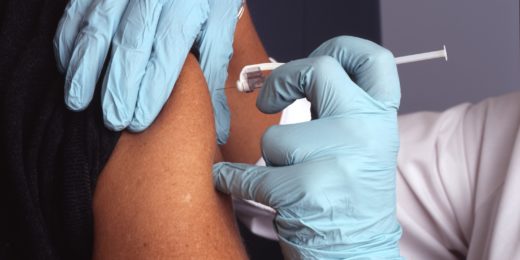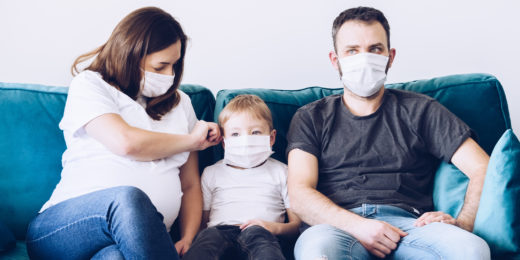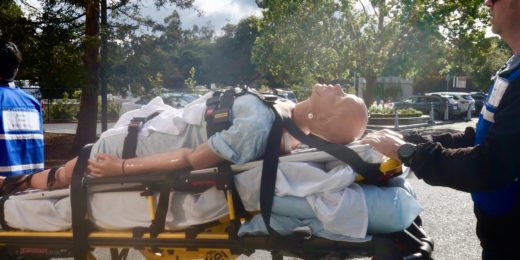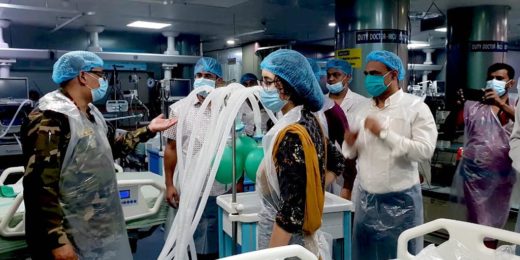Stanford Medicine's Kevin Schulman says digitally enabled care (DEC) would ease clinical workload and improve services for patients beyond virtual visits.
Author: Beth Duff-Brown
Are long COVID sufferers falling through the cracks?
Researchers who study long COVID say its debilitating symptoms are often misdiagnosed by clinicians and dismissed by employers or loved ones because so little is known about the new syndrome.
Researchers team with CDC to expand adult hepatitis B testing
New CDC recommendation for universal hepatitis B screening could significantly reduce liver cancer in Asians and Black people, researchers say.
Preventing the next pandemic from entering the US
Stanford researchers recommend changes to a report that reviewed a national screening and quarantine program for travelers coming to the US.
Stanford doctor helps pediatric cancer patients evacuate Ukraine
A Stanford doctor traveled to Poland to help pediatric cancer patients evacuate from Ukraine and receive care.
Routine COVID-19 testing can help schools stay open, researchers say
Researchers argue that data from routine COVID-19 contact tracing and testing could help schools remain open.
Is it safe to reopen schools? Here’s what the models say
A team of researchers developed a model to simulate potential COVID-19 transmission in elementary and high schools, as well as households.
Racial, ethnic disparities in COVID-19 vaccination coverage
New research shows that 65% of people in the US will be partially vaccinated by July 4 — but for Hispanic and Black people, rates are lower.
Expanded opioid addiction care could save lives, cut costs, study shows
Opioid-addiction care of medication and counseling could cut deaths by 16.9% and save up to $105,000 over lifetime of a patient’s care, study shows.
Study indicates substantial benefits from accelerated release of COVID-19 vaccine
In a modeling study, Stanford researchers find that an approach that holds back COVID-19 vaccine doses for later use needlessly delays vaccination for many.
Study probes household transmission of SARS-CoV-2
Once the first person in a household is infected with SARS-CoV-2, others have a 17% chance of being infected by that person, a Stanford study shows.
Colon cancer screening age drops to 45
As younger adults are being diagnosed with colon cancer, the U.S. Preventive Services Task Force is recommending screening all adults older than 45.
COVID-19 is taking lives and walloping the economy: What can we learn by looking at both?
Early in the pandemic, COVID-19's blow to the economy was widespread, but deaths were concentrated geographically and by age group.
Assault during pregnancy boosts risk of poor infant health
When pregnant women are assaulted, their babies are more likely to be born prematurely and to weigh less, Stanford Health Policy research shows.
National task force recommends structure for responding to public health crises
A national panel worked for three years on guidelines for improving research on public health emergency preparedness and response.
Stanford postdoc hits pause on research to help Bangladesh face COVID-19
A Stanford postdoctoral researcher takes a detour from her stillbirth project in Bangladesh to prepare health workers for COVID-19 cases.

















